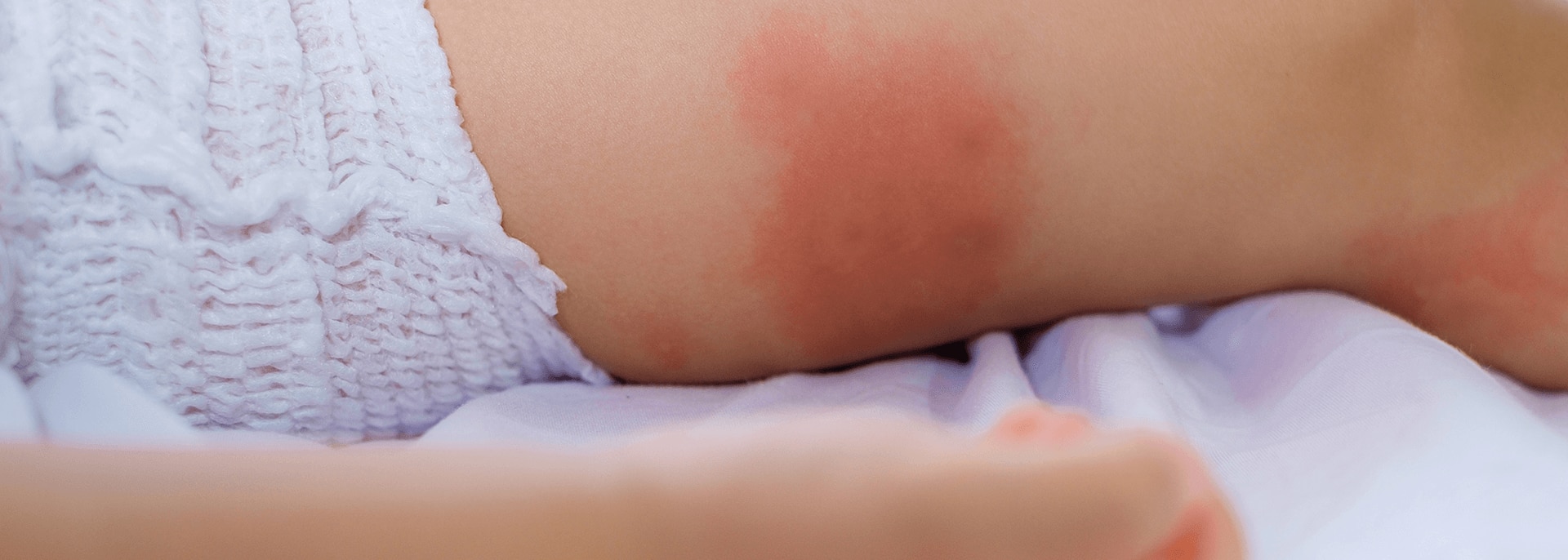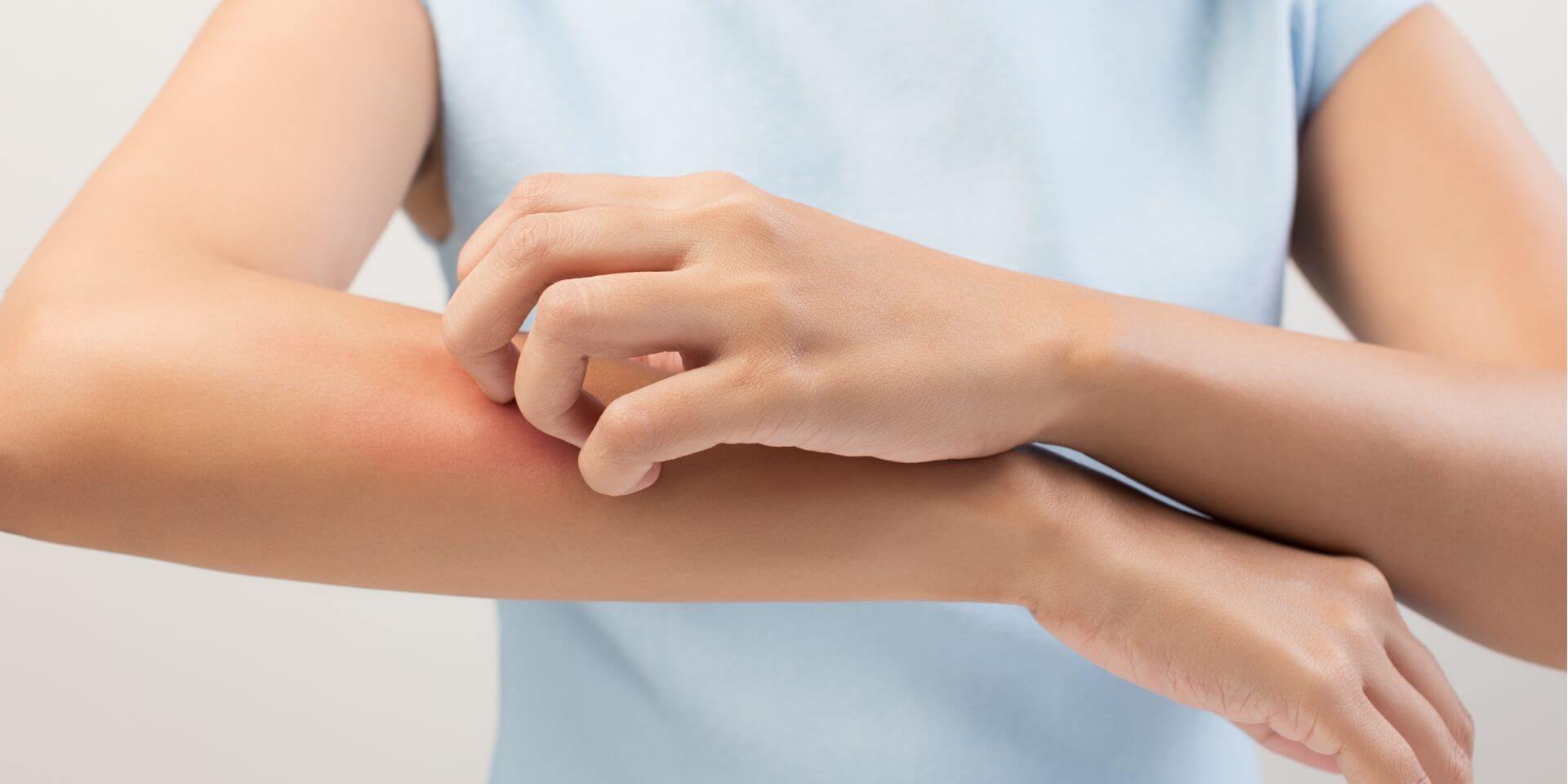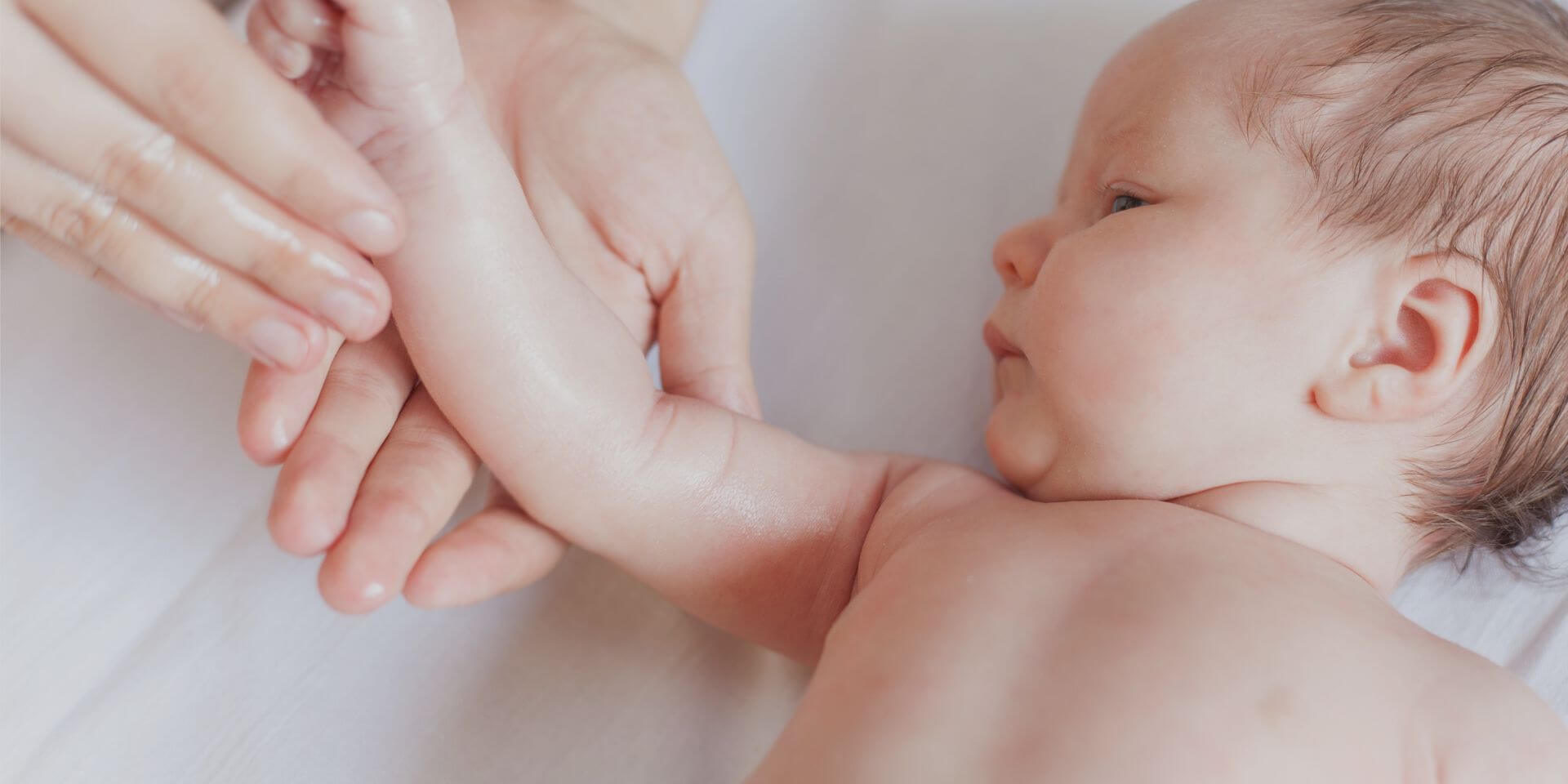

-
Daily atopic eczema
It is one of the most common chronic skin conditions found in infants and young children.
There is an increased risk of developing atopic dermatitis in those with a family history.
-
What are the symptoms?
Dry, red, inflamed and thickened skin that is itchy
-
Where?
On the cheeks, forehead, torso and limbs, and in skin folds such as the neck, elbows and behind the knees.
During flare-ups, which can occur at relatively close intervals, the skin is dry, red, inflamed and very itchy. Some oozing may also occur.
Presentation of atopic dermatitis varies according to age
-
Under 1 year old
Atopic dermatitis affects fleshy areas of the body such as the cheeks and forehead, as well as the arms and stomach. Infantile eczema flare-ups most often occur during teething and throat infections.
-
3-4 years old
Eczema predominantly appears in the skin folds, but also on the hands and face, especially around the mouth and on the eyelids. Skin dryness remains a constant symptom.
-
Over 1 year old
The red plaques appear in the skin folds behind the elbows, knees and ears.
-
5-6 years old
Severe flare-ups no longer occur, but in most cases the child will still have very dry skin.
-
Eczema in adults
If eczema persists into adulthood, the face, neck and hands are most commonly affected.



The need to scratch creates a vicious cycle.

How can atopic dermatitis be soothed?
-
Apply prescription creams to inflamed areas during flare-ups
as directed by your doctor.
-
A relaxing massage with moisturisers
for a tender and soothing moment
-
Moisturising care**
to restore the skin barrier's function and therefore its comfort
Where do I apply my emollient/moisturiser?
Please consult your doctor in regards to flare-ups, when the skin is red and inflamed.
Generally, moisturisers can be applied everywhere except on inflamed skin,
which first requires review by a doctor.
* The advice given on this page is not intended to replace advice from your doctor.
** Moisturisers have a hydrating and nourishing action. Apply the moisturiser outside of the areas affected by eczema flare-ups, unless otherwise advised by your doctor



With your child lying on his or her back, take a small amount of moisturiser and warm it up between your hands by rubbing them together.
-
Legs
Using large circular motions, gently massage the cream into the skin from the ankle to the top of the thigh.
-
Arms
Smooth in cream from the wrist to the armpit. Don't forget the hollow of the elbow!
-
Hands
One at a time, take their hands in yours and massage all over by gently circling your fingers and thumbs. Make sure to do both sides, from the tip of each finger down to the wrist.
-
Legs
Using large circular motions, gently massage the cream into the skin from the ankle to the top of the thigh.
-
Nape of the neck
Make gentle circular motions with your fingertips from the base of the neck all the way up to their earlobes. Don't miss all those nooks and crannies around the ears!
-
Back
With your child sitting up or lying on their tummy, place your hands at the base of their back and do large circular motions up to the nape of the neck.
-
Face
Dab dots of cream all over their face, then smooth from the centre to the outside of the cheeks without neglecting the neck. Carefully apply cream on the eyelids and around the mouth if necessary.
-
Feet
One by one, massage cream into their feet by alternating your thumbs. Start with the sole and each little piggy, then massage the top of the foot, moving up to the ankle.
-
Try a little tenderness.
You can continue doing this regularly, even when the itching sensation subsides, to help reduce the number of flare-ups over time.



Can stress influence atopic dermatitis?
Yes, stress can influence the symptoms of atopic dermatitis.
Can I bathe my child who has atopic eczema?
Absolutely. Short, lukewarm baths or showers using soap free cleansers are best.
Can atopic dermatitis be influenced by diet?
Usually, no. If you think your diet might be affecting you or your child's eczema, please consult your doctor before making any changes.